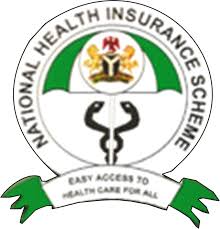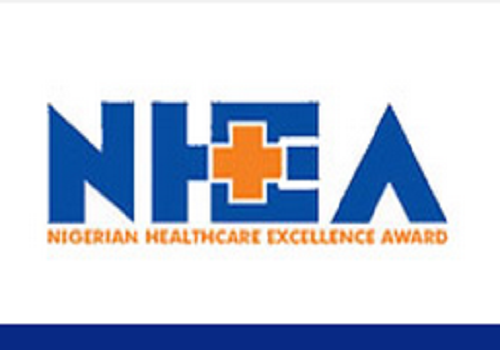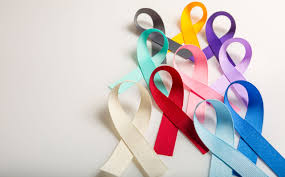Welcome from the program chair
This is a very exciting time in the field of cerebrovascular disease. The rate of discovery of new diagnostics and therapeutics for stroke has never been greater. Come be a part of the International Stroke Conference (ISC) — connecting the world to stroke science. The 2016 conference will take place Feb. 17–19 at the Los Angeles Convention Center, located in Los Angeles, California.
On behalf of the American Stroke Association and the ISC Program Committee, we welcome you to join us. Our program emphasizes basic, clinical and translational sciences as they evolve toward a more complete understanding of stroke pathophysiology with the overall goal of developing more effective prevention, diagnosis and treatment. Stroke systems of care, quality and outcomes are also key parts of the conference.
The International Stroke Conference 2016 provides unique opportunities to meet and network with colleagues from around the world with wide-ranging research interests and expertise in stroke prevention, diagnosis, treatment and rehabilitation. For 2016, we anticipate more than 4,300 professional attendees, as well as exhibitors displaying new stroke products and services. We are truly dedicated to the international nature of this conference with attendees, presenters and faculty coming from all corners of the world.

The 2016 program offers three specialized pre-conference symposia:
The State-of-the-Science Stroke Nursing Symposium
ISC Pre-Conference Symposium I: Stroke in the Real World: To Infinity and Beyond: Endovascular Therapy and Systems of Care, which will focus on scientific advances in cerebrovascular disease while emphasizing their application in the real world
ISC 2016 Pre-Conference Symposium II for Students, Trainees and Early Career: The Nuts and Bolts of Pre-clinical Behavioral Testing in Animals
The main days of the ISC include invited symposia; debates; oral scientific abstract presentations; scientific abstract posters; and special lectures on recent advances and state-of-the-science technologies. This premier conference is intended for adult and pediatric neurologists; neurosurgeons; neurointerventionalists; neuroradiologists and interventional radiologists; physiatrists; endovascular specialists; emergency medicine specialists; primary care physicians; hospitalists; nurses and nurse practitioners; rehabilitation specialists; physical, occupational, and speech therapists; and pharmacists. Additionally, the ISC is just as much home for basic scientists, clinical scientists, stroke program coordinators, policy makers and public health officials who work in the stroke field.
The Council on Cardiovascular and Stroke Nursing has planned another extraordinary pre-conference symposium. The State-of-the-Science Stroke Nursing Symposium 2016 program will include topics in: essentials of standard and advanced clinical practice; rehabilitation and recovery; coordination of care and strategies for quality enhancements; and stroke topics among select groups.
The ISC 2016 Pre-Conference Symposium I, “Stroke in the Real World: To Infinity and Beyond: Endovascular Therapy and Systems of Care,” highlights scientific advances in cerebrovascular disease while emphasizing their application in the real world. This year’s symposium will focus on stroke systems of care including: pre-hospital screening and logistics; transporting to the closest center or the comprehensive stroke center; mobile stroke units and their role in the endovascular world; integrating community hospitals for advanced stroke treatment; imaging techniques (advanced penumbral or collateral imaging versus CTA/MRA and ASPECTS); an interventionalist’s perspective on maximizing workflow; and international strategies to maximize thrombectomy. There also will be a series of challenging breakout sessions. Participants also will have the opportunity to have an informal lunch with the faculty where questions or challenging stroke cases may be discussed.
The ISC 2016 Pre-Conference Symposium II for “Students, Trainees and Early Career: The Nuts and Bolts of Pre-clinical Behavioral Testing in Animals,” was designed to discuss the newest methods for assessing behavioral deficits and functional recovery in animals, the first step in assessing the potential translation of therapeutics into human populations. This half-day symposium highlights several new methods to assess cognitive impairment in rodents, the use of large animals including primates and the use of behavioral testing to examine outcomes in models of intracerebral hemorrhage and vascular cognitive impairment. We will begin with an introduction to the basics of behavioral testing, including discussion on the “fundamentals” that will increase reliability and reproducibility in animal experiments. The importance of blinding, randomization and consistency of the testing environment to reduce variability will be highlighted. We will then discuss how to appropriately design and interpret behavioral studies, including the proper use of parametric and nonparametric tests, interactions and power analysis. We will complete the session with a demonstration of newly developed cognitive tests for use in mice and rats.
The main days of ISC will have special symposia, debates and abstract presentations that will focus on numerous topics from 21 stroke-related categories. Sessions in clinical categories will focus on community risk factors; emergency care; acute neuroimaging; acute endovascular and acute non-endovascular treatment; diagnosis of stroke etiology; cerebral large artery disease; in-hospital treatment; clinical rehabilitation and recovery; and health services, quality improvement and patient-centered outcomes. Sessions in basic science categories will focus on vascular biology in health and disease; basic and preclinical neuroscience of stroke recovery; and experimental mechanisms and models. Further specialized topics include pediatric stroke; intracerebral hemorrhage; nursing; preventive strategies; vascular cognitive impairment; aneurysms; subarachnoid hemorrhage; neurocritical care; vascular malformations; and ongoing clinical trials.
This year, not only will you have the opportunity to experience exceptional education and network with cerebrovascular research and practice experts from around the globe, you will also have the chance to experience the many thrills of the sports and entertainment capital of the world — sunny Los Angeles, California!
Please join us for the International Stroke Conference 2016 in exhilarating Los Angeles, California, and be a part of this exceptional and illuminating experience. We look forward to seeing you in February.
Kyra J Becker, MD, FAHA, Chair, International Stroke Conference 2016 Program Committee
ABUJA: Training Schedule for Basic Life Support BLS, Pediatric Advanced Life Support (PALS), Advanced Cardiovascular Life Support ACLS, First Aid, CPR, AED
PORTHARCOURT: Training Schedule for Basic Life Support BLS, Pediatric Advanced Life Support (PALS), Advanced Cardiovascular Life Support ACLS, First Aid, CPR, AED
LAGOS: Training Schedule for Basic Life Support BLS, Pediatric Advanced Life Support (PALS), Advanced Cardiovascular Life Support ACLS, First Aid, CPR, AED




